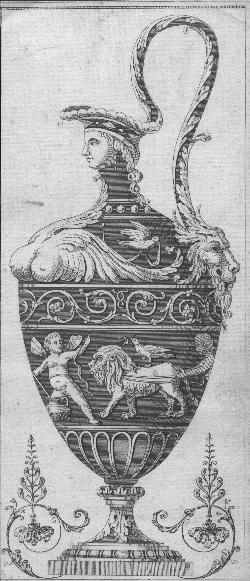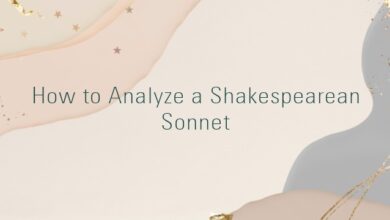
William Shakespeare – Sonnet 108
What’s in the brain that ink may character
Which hath not figured to thee my true spirit?
What’s new to speak, what now to register,
That may express my love, or thy dear merit?
Nothing, sweet boy; but yet, like prayers divine,
I must each day say o’er the very same;
Counting no old thing old, thou mine, I thine,
Even as when first I hallowed thy fair name.
So that eternal love in love’s fresh case,
Weighs not the dust and injury of age,
Nor gives to necessary wrinkles place,
But makes antiquity for aye his page;
Finding the first conceit of love there bred,
Where time and outward form would show it dead.
108 was the number of sonnets in Sidney’s Astrophel and Stella, one of the most prominent and among the earliest of the sonnet sequences to be published in England, and certainly among the most influential. It was published in 1591, posthumously, but circulated in manuscript for eleven years before the date of publication, and was enormously influential in setting the pattern for subsequent writers. It is almost inevitable therefore that the poet, having reached this vantage point, takes stock of his condition and the progress of his love. Is there anything new to express, anything which might enhance his love, or the mutual love of lover and beloved? The conclusion is that, since love has been eternised, and always was eternal, the same prayers of devotion may be repeated over and over again, and love will remain fresh and green for ever, despite the ravages of time and ageing. In effect nothing has changed, and the first impulses of love, which brought into being their divine affection, remains as vital as ever, and with some surprise and joy the poet greets this discovery, and justifies once more to his friend the constancy and depth of his love, expressed though it is in old and worn out phrases.
The 1609 Quarto Version
WHat’s in the braine that Inck may character ,
Which hath not figur’d to thee my true ſpirit,
What’s new to ſpeake,what now to regiſter,
That may expreſſe my loue,or thy deare merit?
Nothing ſweet boy,but yet like prayers diuine,
I muſt each day ſay ore the very ſame,
Counting no old thing old,thou mine,I thine,
Euen as when firſt I hallowed thy faire name.
So that eternall loue in loues freſh caſe,
Waighes not the duſt and iniury of age,
Nor giues to neceſſary wrinckles place,
But makes antiquitie for aye his page,
Finding the firſt conceit of loue there bred,
Where time and outward forme would ſhew it dead.
Commentary
1. What’s in the brain that ink may charactercharacter = write, set out in writing. character as a verb is used in Hamlet in the same sense as here:
…..these few precepts in thy memory
Look thou character Ham.I.3.58
It is more commonly found as a noun, meaning ‘handwriting’. As in:
Look you, sir, here is the hand and seal of the duke: you know the character, I doubt not; and the signet is not strange to you. MM.IV.2.180-3.2. Which hath not figured to thee my true spirit?figured = depicted, portrayed, illustrated.
my true spirit = my feelings and my inner self, as they really are. true conveys the sense of ‘honest, accurate, reliable, constant, unbending’.3. What’s new to speak, what now to register,what now – many editors emend now to new, which is probably unnecessary, since the line then becomes pointlessly repetitive.
what now to register indicates that the poet is considering what he may now set on record to add to the declarations of love he has already made. register = to enter or record in a precise manner (OED.1.a).4. That may express my love, or thy dear merit?express = put into words, give utterance to, portray. (OED.8.a.) It is interesting to note that of the six uses of this word in the Sonnets, three are found in this group, 105, 106 and here (108). Thus:
One thing expressing, leaves out difference. 105
I see their antique pen would have express’d 106
If it has any significance, it is that the poet here explores with some intensity the import of the things he might say about his beloved. To what extent does love depend on the expressions used to portray it and convey it to the loved one? In 105 he discovers that the sameness is an image of the sameness and permanence of the Trinity. In 106 it is the antique pens which have expressed the ideal of beauty, foreshadowing the beauty of the beloved. Here he desires that the words show something real and lasting, something which transcends the boundaries of ordinary existence. Yet the paradox is that the utterances are always the same, they express the same love in the same way, and the sameness threatens to transform them to empty formulae. However it is not so, as the poet declares in the following quatrain. Just as divine prayers are significant and sincere as an expression of love, so too are the declarations of love which he makes to the young man, even though they might appear to be mere repetitious mouthings. They are as rich as ‘prayers divine’ and the love they show is on that level and as quintessential as divine love.
thy dear merit = your precious qualities and deserts.5. Nothing, sweet boy; but yet, like prayers divine,
Nothing – i.e. there is nothing new to speak or to record.
sweet boy – some commentators have found this too sickly sweet, and beyond the boundaries of what should be expressed in verse. It is however in tune with the opening of the valedictory sonnet 126:
Oh thou, my lovely boy, who in thy power,
Dost hold Time’s fickle glass, his sickle hour.
It also chimes with many of the other expressions of total devotion which are scattered throughout the sequence, such as, for I love you so; thou, all they, hast all the all of me; you are my all the world; and so on. Both expressions, sweet boy and my lovely boy, seem to be entirely consonant with the way a lover might address his beloved, and the sense of injured taste, if there is any, we should perhaps put aside, and welcome directness and truth instead. If that is the way lover’s talk to one another (as indeed they do), then why should we object to it in poetry?
prayers divine = prayers addressed to God; any prayers said regularly, at appointed times of the day, i.e. the divine office. In Elizabeth’s reign, prayers were enjoined on the populace twice a day, morning and evening. But also probably a reference to the offices which (Catholic) priests had to recite daily. (See the Introductory Notes). The next line emphasises the repetitive nature of these prayers. 6. I must each day say o’er the very same;say o’er = repeat, recite. As in the similar phrase in Sonn. 30:
And heavily from woe to woe tell o’er
The sad account of fore-bemoaned moan,
There is probably also an association here called into play of ‘telling’ the beads of a rosary as one recites the ‘Hail Marys’, an especially repetitive prayer formula. (A complete rosary consisted of one Our Father, followed by ten Hail Marys and one Glory Be, the whole sequence repeated five times). The association is heightened by the use of the word ‘counting’ in the next line, and the reference to the ‘Our Father’ in the following line.7. Counting no old thing old, thou mine, I thine,counting = considering, thinking.
no old thing old – i.e. no old and oft repeated prayer as being old. Counting no old thing old = I do not consider any old and oft repeated prayer or formula of words as old or tedious per se. They are new each time I say them.
thou mine, I thine – perhaps an echo of a prayer. E.g. Thou, Lord, art my deliverer. I am thy servant, etc. There is also an echo from the Song of Songs 2.16.: ‘My love is mine, and I am his, which feedeth among the lilies until the day break’. Some editors put thou mine, I thine in inverted commas, indicating that it is being cited by the poet as an example of an oft repeated phrase, as one repeats the lines of prayers; or as an example of a declaration of love, which though oft repeated, is always new. The theme of the interchangeability of hearts has been a frequent one throughout the sonnets.8. Even as when first I hallowed thy fair name.
Even as when = in just the same way as when; I hallowed thy fair name – an obvious echo of the Lord’s Prayer, Our Father, which art in heaven, hallowed be thy name. Since this is the most famous prayer in Christendom, it is unlikely that the echo would be missed by any Renaissance reader of the poem. There are only two other uses of the word in Shakespeare, shown below.
I’ll have the cudgel hallowed and hung o’er the altar; it hath done meritorious service. MW.IV.2.181-2.
…… they throng who should buy first, as if my trinkets had been
hallowed and brought a benediction to the buyer WT.IV.4.594-6
Commentators remark on the implicit blasphemy, or sacrilege, of coupling the respect and love for the Deity with love of a fellow mortal. SB comments on lines 5-8: ‘As in 105, the wit of this quatrain derives from the speaker’s self-betrayal in presenting evidence of sacrilege and in his apparent obliviousness to the implications of his words; here the self mocking wit gets an extra twist because the sacrilegious echo appears in a context that reminds us that the Lord’s Prayer, the most repeated of all Christian prayers, is prefaced by “when ye pray, use no vaine repetitions as the heathen: for they think to be heard for their muche babbling”‘. (Matt.6:7). HV concludes her analysis of this sonnet as follows: ‘Once again, as in 105 and 106, sonnet 108, in its “hallowing the name” of the young man instead of the name of the Deity, finds its wit in blasphemy’. JK gives no special attention to the question of whether or not this and similar nuances in 105 and 106 are sacrilegious. GBE and KDJ pay scant attention to the possibility of blasphemy in this sonnet, although the latter mentions that similar applications of repetitive religious devotion to secular love were not uncommon.
The difficulties of interpretation arise chiefly because, if the blasphemy is so patently obvious as SB and HV insist, one needs to offer some explanation of how it could be tolerated in the religiously intolerant society of the time. England was less extreme in this respect than France or Spain. The hostility to papism was brought on partly by the Papal Bull of 1570, which effectively encouraged Catholics to be traitors to the realm. But even under James I discontent was rife, as is shown by the gunpowder plot, and by the gradual swerving off of the Puritans from loyalty to the government. Therefore the governments under both Elizabeth and James throughout Shakespeare’s life tended to be suspicious of deviation, and blasphemy would attract the attention of all religious parties. The articles of inquiry which followed the Elizabethan religious settlement, which were designed to ensure uniformity of observance of religion throughout the parishes, enjoins the searching out of ‘contentious persons…….and any that bruiteth abroad rumours of the alteration of religion received within this realm’, as well as ‘blasphemers and adulterers…. witches, common drunkards and ribalds’. After forty years of Elizabeth’s reign, it may be conjectured that tension was not running so high, and religious tolerance was the norm. Nevertheless plots against her still continued, and there was a perpetual concern about the succession, and what it might bring. When James did accede to the throne, the ‘incertainties’ were at least removed, but his brand of Christianity brought little comfort to Catholics or to Puritans, and despite the claims he makes to universal peace, perhaps celebrated in the previous sonnet, he was a more intransigent and intolerant monarch than his predecessor had ever been.
One other aspect of this outbreak of prayer book and doctrinal fervour which makes it the more striking is the general absence in the plays of anything which is deeply controversial in a religious sense. Shakespeare gives the impression of a man having heard the arguments on both sides, of being respectful of religious conviction, of subscribing generally to the tenets of Christian doctrine, but having such a large admixture of tolerance and humanity in his being that he did not feel the need to espouse any one cause. Besides, so many of the characters in his plays, Falstaff, Pistol, Autolycus, Sir Toby Belch, to name but a few, are almost completely outside the control of religion of any colour. As a dramatist he portrayed the world at large, the world that burgeoned around him in the seething London of the time, despite all the strictures of church and state.
Nevertheless we have to postulate a society, perhaps a very limited closed circle of friends, perhaps the ‘private friends’ who were the original readers of the ‘sugared sonnets’, who could see these sonnets, understand their references and be amusedly shocked by them. The circumstances in which the sonnets came to be published will probably always remain unknown. Perhaps by 1609 the characters involved were sufficiently remote as to be untouched by them, and perhaps the sacrilegious references were no longer deemed such, or the wider world had changed and was more tolerant of such matters. And there always remains the possibility, that despite the evident care which has been taken in the arrangement of the sonnets, a care which can hardly be anything other than authorial, the publication was nevertheless an act of piracy, not sanctioned by the author.
One final possibility, which I have not touched on at all, is that there is no blasphemy in these poems, and that we should read them if anything as the record and witness of a spiritual rapprochement between divine and earthly love, the one supporting and enriching the other. No final judgement is possible, and in the end each reader must make up her or his own mind, how to take these poems, and perhaps leave undecided the reach and significance of many parts of them. For a poem is not a mathematical theorem, fixed and determined for all time, but a linguistic miracle which lives and grows as its readers grow alongside it.9. So that eternal love in love’s fresh case,in love’s fresh case = in the new clothing/skin/covering in which love now finds itself (due to ageing and changeing circumstances). Or, in the old, eternally repeated phraseology of love, which is constantly refreshing itself, and appearing newly clothed. The difficulty of the line springs from the use of the word case, which in Shakespeare usually means ‘situation, circumstances’, or ‘set of facts for consideration in a court of law’. Apart from that it is used in the phrase ‘in any case’. Of the 110 uses in the plays and poems, in only about ten does it have the meaning of ‘outer covering. container, skin’, or is used as a verb meaning ‘to encase’, or ‘to flay’. However this does not necessarily restrict its use here, and possibly all meanings are registered, though not all predominate10. Weighs not the dust and injury of age,Weighs not = does not attach importance to.
the dust and injury of age – dust is associated with death, as in ‘Memento homo, quia pulvus es, et in pulverem reverteris‘ – ‘Remember man that thou art dust, and to dust thou shalt return’, (from the service for Ash Wednesday, in Lent); injury is associated with the decrepitude and diseases of old age. Love does not take account of such temporal failings.11. Nor gives to necessary wrinkles place,gives …. place to = yields to, gives precedence to, gives importance to. necessary wrinkles = the wrinkles of old age, which are unavoidable.12. But makes antiquity for aye his page;
A line of uncertain meaning, depending on whether one takes page to mean ‘servant’ or ‘page of a book’. Given that line 1 refers to writing, and that the previous sonnet has called on chronicles of ancient times for evidence, it seems that the printed page is the predominant meaning here. Consequently the meaning of the line would be ‘he (the lover) takes the records of antiquity as his exemplars, seeing in them praises of what is always beautiful, and seeing in them the eternity of loving’. Alternatively it could mean ‘he (love) makes age and decrepitude his servants and is in no way subservient to them’. Antiquity in the sense of age is used in Sonnet 62:
But when my glass shows me myself indeed,
Beated and chopp’d with tann’d antiquity,
In fact these are the only two uses of the word in the sonnets, so it is perhaps stretching the point to insist that here it means ‘the writings or traditions of ancient times’. In the plays it is used five times, mostly with this same meaning, as in these examples.
Hadst thou not the privilege of antiquity upon thee, AWW.II.3.206
Under an oak, whose boughs were moss’d with age
And high top bald with dry antiquity, AYL.IV.3.103-4.
Only in Hamlet does it appear to have the more general meaning of ‘ancient times’ (OED. 4.), but even here it could merely denote ‘the seniority of age or old age, and the respect due to it’ (OED.2):
The rabble call him lord;
And, as the world were now but to begin,
Antiquity forgot, custom not known,
The ratifiers and props of every word,
They cry ‘Choose we: Laertes shall be king:’ Ham.IV.5.99-103.13. Finding the first conceit of love there bred,‘Finding love again as it was when first conceived and bred (in those times long ago when we first met). Finding love as it was originally conceived in ancient times, when first it was discovered’. Despite the difficulty of the expression, it probably has the simple meaning ‘discovering our love again to be as fresh as it was in those early days when it first came into being’.14. Where time and outward form would show it dead.time and outward form = the outward appearance of things, which time has now brought to a state of dustiness.
it = our love.
I.e. custom and experience of the world would suggest that our love by now must be extinct.





